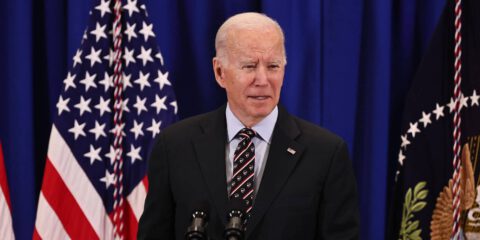במקום להצטרף למקהלת הגינויים, ישראל צריכה להסתגל למצב החדש, שכאמור אינו בגדר הפתעה, ולמצוא את המענים המתאימים.
החלטתו של נשיא ארה”ב להחזיר את כוחות ארצו מצפון סוריה הביתה נתקלה בזעם רב ובקיתונות של ביקורת מימין ומשמאל. הביקורת שראתה “בגידה” בכורדים נבעה מדאגה מוסרית לגורל הכורדים, אבל לא פחות מכך, גם מהשנאה והבוז לטראמפ.
בה בעת שאת האהדה לכורדים אפשר להבין, קשה לקבל את הבורות שחשפו מבקרי ההחלטה בנוגע למהותם של יחסים בינלאומיים וביחס למדיניות חוץ והלכי הרוח בחברה האמריקנית.
יחסים בין מדינות הם מערכת של עזרה עצמית. כל מדינה צריכה לדאוג לעצמה בשמירת עצמאותה וריבונותה. קיומן של ישויות קטנות מצוי תמיד בסכנה, והסתמכות על בעלי ברית מתגלה לעיתים כשגיאה גורלית. המקרה של צ’כיה ב־1938 הוא דוגמה.
הכורדים היו צריכים לדעת זאת. הם כבר נזנחו בעבר על ידי ארה”ב ברגעים שבהם האינטרסים של אמריקה השתנו: ב־1975 תחת נשיאותו של ג’רלד פורד, וב־1992 תחת ג’ורג’ בוש. לא רק שהחלטתו של טראמפ אינה בגדר חידוש, הוא אף הודיע לפני כשנה על כוונתו להסיג את הכוחות האמריקניים מצפון סוריה.
למעשה, החלטתו משקפת מדיניות שבה התחיל כבר הנשיא אובאמה – נסיגה אמריקנית מהאזור. ארה”ב אינה זקוקה יותר למשאבי האנרגיה במזה”ת, ומעורבותה הצבאית רבת השנים גבתה מחיר דמים יקר – תרתי משמע.
טראמפ אינו ידוע כאיש ספר, אבל הוא ממשיך מסורת אינטלקטואלית עתיקת יומין המוכרת מכתביהם של תוקידידס, מקיאוולי וקיסינג’ר: ריאל־פוליטיק. זו תמימות לצפות שמדינות ינהגו אך ורק לפי עקרונות מוסריים; ממשלות מאמצות מדיניות המשרתת את האינטרסים של מדינותיהן. זה אולי נשמע “קר”, אבל הציווי המוסרי העליון הוא שרידות ואינטרסים, לא אלטרואיזם.
בדמוקרטיות, האינטרסים נקבעים על יד מנהיגי המדינה ומשקפים במידה רבה את ההעדפות של העם. המדיניות של טראמפ, שאין לנתקה מהדחפים הבדלניים שלו, משקפת הלכי רוח דומיננטיים בציבור האמריקני. לאחר עשורים של לחימה במזה”ת, מבלי לקצור הישגים משמעותיים, אמריקה עייפה ממלחמות.
נכון שארה”ב נוהגת לראות בעצמה מגדלור של ערכים דמוקרטיים וגם שוטר העולם, אבל אזרחיה מתעייפים ממימוש היעד הזה. טראמפ עצמו לא היה מעולם שותף לתחושה שלארה”ב יש תפקיד מיוחד בעולם, אך בוודאי חש את הרתיעה של אמריקנים רבים מפני הרפתקאות צבאיות מעבר לים. הבאת החיילים הביתה היא היענות לרחשי הציבור, דבר שעשוי להועיל לו בבחירות לנשיאות בשנה הבאה.
אין ספק שהוצאת הכוחות האמריקניים מצפון סוריה משפיעה על אינטרסים ישראליים. ההחלטה תעניק יותר חופש פעולה באזור לאיראן ולטורקיה, ומדינות אחדות במפרץ עלולות להתקרב לטהרן. אך מנגד הופכת ההחלטה את ישראל לבעלת ברית חשובה יותר מבעבר עבור וושינגטון; היא זוכה לחופש פעולה גדול יותר למימוש מטרותיה ושימוש בכוח.
במקום להצטרף למקהלת הגינויים, ישראל צריכה להסתגל למצב החדש, שכאמור אינו בגדר הפתעה, ולמצוא את המענים המתאימים. עליה להימנע מקריאה לנוכחות אמריקנית באזור, כי בסופו של דבר החשיבה האסטרטגית הישראלית הדגישה תמיד את ההסתמכות העצמית. כיום, כבעבר, על ישראל להיות מוכנה לפעול עצמאית, גם ללא בעל ברית.
פורסם ב-ישראל היום 21.10.2019
סדרת הפרסומים “ניירות עמדה” מטעם המכון מתפרסמת הודות לנדיבותה של משפחת גרג רוסהנדלר.
תמונה: Bigstock









 - בניית אתרים
- בניית אתרים